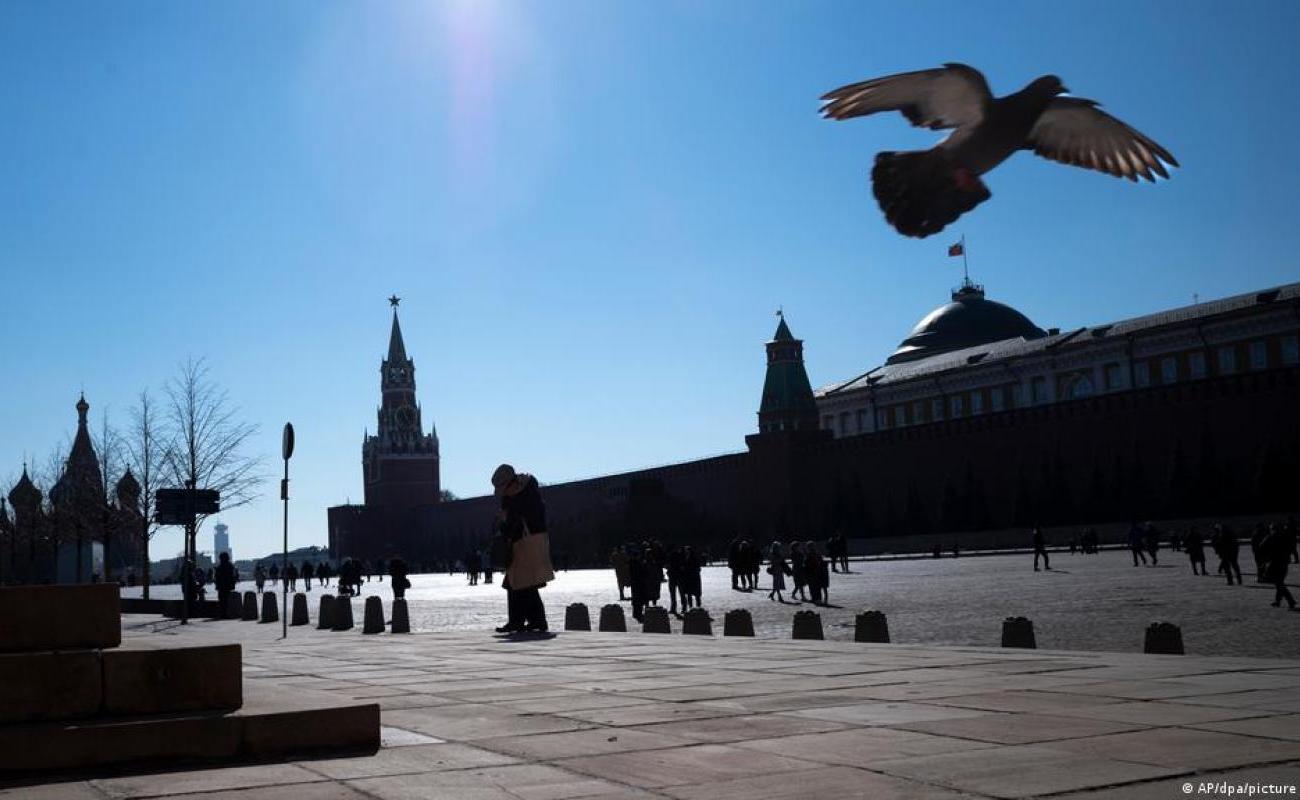Russian Secret Service: “Many At The FSB Think The War Is Lost”
The Kremlin’s power apparatus is rumbling. Internal information suggests so. contrasts and Deutsche Welle were able for the first time to speak to a woman who worked for the domestic secret service FSB.

Marija Dmitrieva made it out of Russia – via North Africa to the transit area at the airport in Paris, where she applied for political asylum. She can no longer stand what is happening in her homeland, she says: “I want the dying to end. I no longer want people to die in Ukraine, I don’t want Russians to die.” The 31-year-old is a doctor and says she has worked for three Russian security agencies since 2016 – most recently for the domestic secret service FSB. But the war in Ukraine made her break with the state.
A team of ARD political magazine contrasts meets them on the Mediterranean coast in southern France. Dmitrieva is neither an opposition member nor a liberal. Until recently, she herself was part of the Putin system, probably working for the Interior Ministry, the Defense Ministry and the FSB secret service. Here in France it is now going public for the first time.
Many think the war is lost
Many in the FSB now believe the war is lost, she says. As a doctor, she repeatedly treated dissatisfied employees who wanted to leave the service: “They said they were tired. You don’t just leave the FSB like that. It’s a very respectable job that’s very difficult to get. And if then three young employees resign within a month, it suggests that they don’t agree with the system.” Dmitrieva believes that secret service officials are afraid that one day they will be held accountable for crimes committed in Russia’s war of aggression.
Their statements cannot be verified independently. Dmitrieva occupied contrasts but with documents their cooperation in the Russian security authorities. Plane tickets that she presents confirm her statements about the escape.
The political scientist and Russia expert Gerhard Mangott from the University of Innsbruck considers Dmitrieva’s assessment to be fundamentally plausible: “I have learned from my sources that there are questions in the management staff of the FSB as to how much they are willing to pay for a victory in of Ukraine. And that the number of those who worry that Russia could also lose this war is increasing.”
“Wind of change” in the secret service
Vladimir Osechkin draws a similar picture. The Russian human rights activist and founder of gulagu.net, an NGO that exposes abuses in Russian prisons, has good contacts with critical secret service agents. Under the motto “wind of change” he has published numerous reports by a Russian secret service agent on the Internet since the beginning of the Ukraine war contrasts-Information from Western services is deemed to be authentic.
Activist Osetschkin sees a rethink in the Russian secret services in relation to Putin.
“Judging by the sources in the system, many believe that what Putin started on February 24 is leading to the abyss, to catastrophe, that it is Putin’s biggest mistake as a politician and head of state,” says Osetchkin, who also lives in France, in an interview with contrasts. “Many in the system even see this as a betrayal. Because over the course of 20 years, the entire system of security agencies has helped Putin to stay in power.” Now they are afraid that Putin will jeopardize their prosperity and security.
French authorities are concerned about Osechkin’s safety – he is under 24-hour surveillance. In an interview, he says that there was an attempted attack on him just a few weeks ago. It recently became known that investigations had been launched against him in Russia for allegedly spreading false information about the Russian army.
Putin’s “bloodhound” Kadyrov
Osechkin says growing resentment is the reason why Putin promoted Chechen leader Ramzan Kadyrov to colonel-general. “Putin’s bloodhound” is considered particularly loyal and brutal. The head of Wagner’s private mercenary army, the oligarch Yevgeny Prigozhin, is also said to have gained influence. One of Putin’s tactics, according to Osetschkin, with which he wants to protect himself against attempted coups: “Putin is terrified of it, which is why he is creating a large number of different departments and units that can turn against each other.”
A strategy that Mangott also recognizes: “Putin is someone who likes to have a lot of actors around him who are in conflict with each other and who compete with each other,” says the political scientist. “That allows him to make a decision when the time is right, a judge’s verdict, to be the last mediator and decision-maker, so to speak.”
But this is increasingly causing tension in the power apparatus, Dmitrieva says: “The employees in the security agencies are afraid that even more radical forces will come to power in the future, in other words bandits like Kadyrov, to whom they will then have to submit.” Kadyrov’s people already have better salaries and more modern equipment than the regular troops.
War without regard for civilians
Dmitrieva believes the war will continue to escalate. Two FSB sources told her about the Russian Security Council meeting on October 10. “They discussed how the situation in Ukraine could be brought under control. It didn’t matter what means were used to achieve this goal and how many civilians died in the process.” Systematic bombing of civilian targets in Ukraine began on the same day.
The doctor from Moscow has given up her old life and left behind friends in Russia. She now hopes that even more people from the security authorities will openly oppose Putin.
